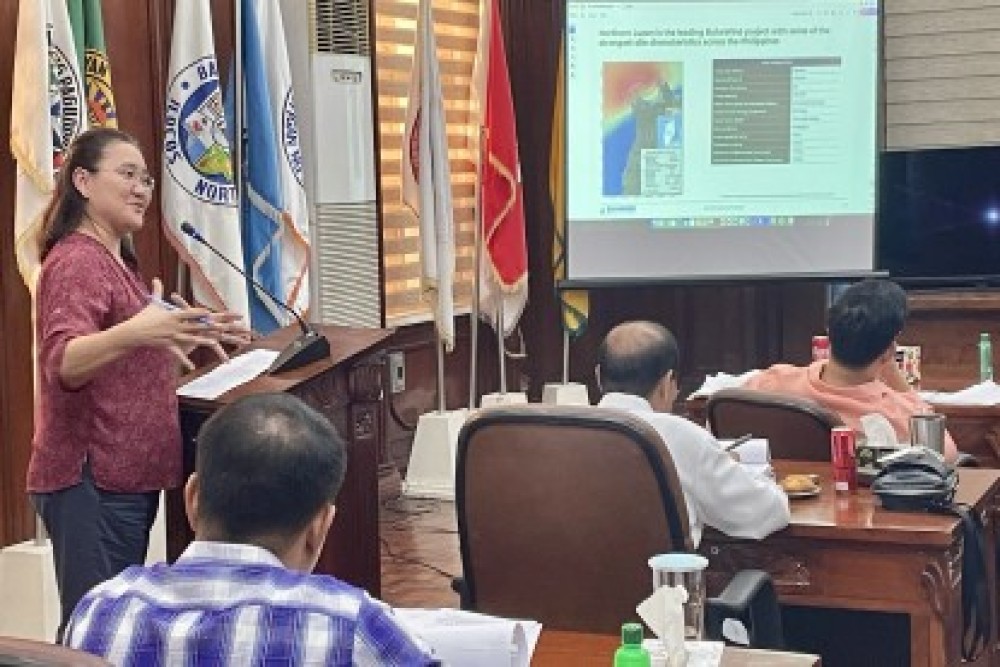Ilocos Norte wants proponents of the P330-billion two-gigawatt (GW) offshore wind farm in the northwest part of the province ensure that communities where the proposed energy project will be located can benefit from it.
“It has to be advantageous to the local community like having lower electric rates, and ensure the protection of marine life,” said Ilocos Norte Vice Governor Cecilia Araneta-Marcos during the project presentation of the Capitol session hall.
BuhaWind Energy, a joint venture of Danish renewable energy firm Copenhagen Energy A/S (CE) and PetroGreen Energy Corp., is seeking endorsement of the Ilocos Norte Provincial Board for the pre-development phase of the offshore wind project.
Part of the project’s pre-development stage include the erection of temporary wind measurement or meteorological mast and deployment of two scanning Light Detection and Ranging (LiDARs) systems in the coastal villages of Bobon in Burgos town, around 45 meters from the shoreline, and in Pagudpud town, around 250 meters from the shoreline.
Maria Victoria Olivar, vice president for operations of the BuhaWind Energy Northern Luzon Corporation, told members of the Provincial Board that the pre-development phase of the offshore wind farm, which covers around 66,528 hectares in the coastal areas of Burgos, Bangui, Dumalneg, and Pagudpud, may take one to four years.
"With offshore wind, we are optimistic that we can surpass the demand for fossil fuel," Olivar said, adding that benefits of the project are scalable and are not constrained by land availability.
If plans push through, the first offshore wind farm in the province is expected to be fully operational by 2030, she added.
As the capital of renewable energy in the Philippines, Ilocos Norte continues to welcome investors of renewable energy, provided that any form of development will be beneficial to the local communities.
Under the Corporate Social Responsibility (CSR) ordinance of Ilocos Norte, any investor who wishes to start or expand business in the province needs the endorsement of the Provincial Board and among the requirements is the submission of its CSR project.
The Marcos administration, through the Department of Energy (DOE), is promoting investments in indigenous energy resources to supply the country’s increasing power needs.
PNA PHOTO


